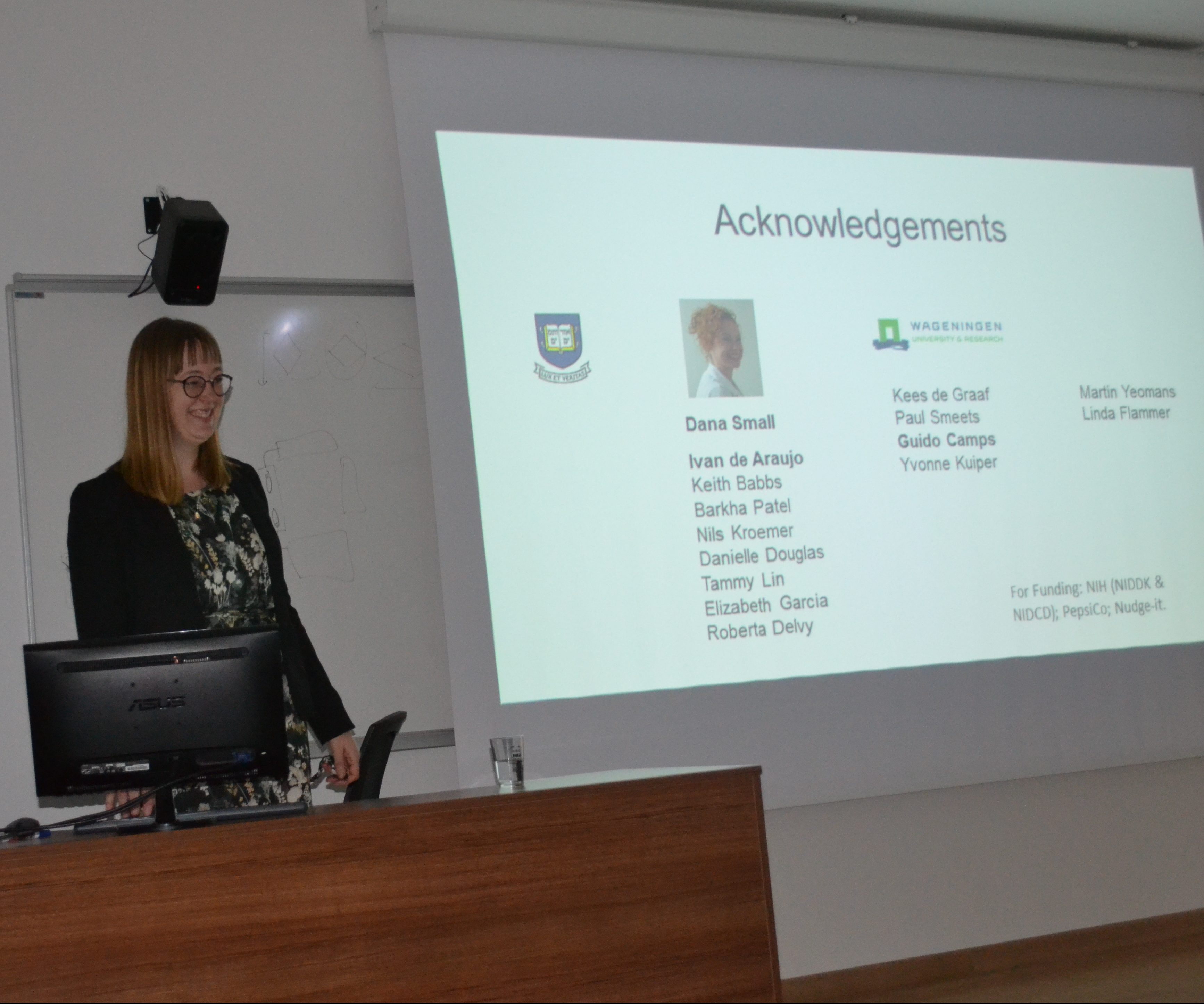Dr. Maria Veldhuizen 06 Mart 2019 tarihinde UMRAM/Aysel Sabuncu Beyin Araştırmaları Merkezi’nde seminer verdi.
Ultrecht ve Yale Üniversitesi’nde Phd ve doktora sonrası çalışmalarını gerçekleştirmiş olan Dr. Maria Veldhuizen’ın seminer konusu ‘ The Role of The Mouth, Gut, and Brain in The Development of Flavor Preferences.’
Dr. Veldhuizen’in konuşması ile ilgili bilgiler şöyledir;
Food cues previously paired with calories become liked and facilitate the identification of reliable energy sources. Post-ingestive signals related to nutrient metabolism are thought to be the primary drivers of this reinforcement, however, the identity of the physiological signals regulating this remain elusive. In a series of neuroimaging and indirect calorimetry human studies, we examine the relative roles of caloric load and perceived sweetness in driving metabolic, perceptual, gastric and brain responses to sugared beverages. We demonstrate a non-linear association between caloric load, metabolic response, and reinforcement potency, which is driven in part by the extent to which sweetness is proportional to caloric load. Altered metabolism may lead to weight-gain over time. Thus these results suggest we need to carefully consider the desirability of adjusting the fidelity between sweetness and calories in beverages.
Dr. Veldhuizen’in akademik geçmişi ise şöyledir;
Maria Veldhuizen was trained as a psychophysicist in taste, smell and flavor perception, both during her PhD with Dr. Jan Kroeze at Utrecht University in the Netherlands and post-doctoral fellowship with Dr.
Lawrence Marks at The John B. Pierce Laboratory and Yale School of Medicine in New Haven, Connecticut, USA. Since joining Dr. Dana Small’s lab in 2006, in the department of Psychiatry at Yale School of Medicine , she has combined these skills with neuroimaging of chemosensory perception in humans using fMRI and advanced computational techniques such as network modeling and pattern analysis. She is interested in gustatory encoding, integration of taste and smell, and development of flavor preferences. One focus has been on how the human brain achieves attention to taste and how taste cortex interacts with other cortical areas under attention. She has also worked on the neural commonalities of sweet taste and sweet odors. Lastly she is specifically interested in understanding how the appreciation of a flavor develops by association with calories and interactions with metabolism in humans. Her future ambitions include employing non-invasive neuro-modulation as an intervention in obesity and writing a children’s book on taste and smell perception.
